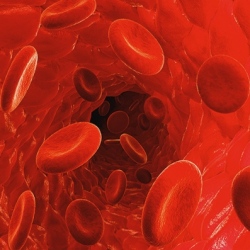
People with a non-O blood group have a slightly increased risk of heart attack and stroke. Scientists say it could be because higher levels of a blood-clotting protein is present in people with A, B and AB blood. The findings could help doctors better understand who is at risk of developing heart disease, the researchers said.
But a heart charity said people should focus on giving up smoking and eating healthily to reduce their risk. The research, presented at the European Society of Cardiology congress, analysed studies involving 1.3m people.
It found that 15 in 1,000 people with a non-O blood group suffered a heart attack, compared to 14 in 1,000 people with blood group O.
Although the increase in risk was small, when applied to a whole population the numbers become more important.
Previous research found that people with the rarest blood group – AB – were the most vulnerable, being 23% more likely to suffer heart disease.
The most common blood group in the UK is O, which 48% of the population have. There are a number of factors which can increase the risk of heart disease, such as smoking, being overweight and leading an unhealthy lifestyle.
These are all things we can do something about – unlike our blood group. Which group you belong to is determined by the genes inherited from both parents.
Study author Tessa Kole, from the University Medical Center Groningen in the Netherlands, said more research was needed to work out the cause of the increased cardiovascular risk in people with a non-O blood group.
And she said looking at the risk for each individual blood group would help. She said: "In future, blood group should be considered in risk assessment for cardiovascular prevention, together with cholesterol, age, sex and systolic blood pressure."
People with blood group A – who are known to have higher cholesterol – may need a lower treatment threshold for high blood pressure, for example.
